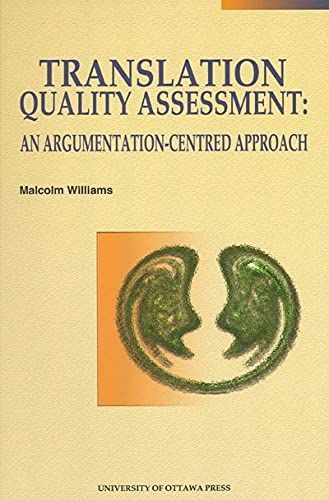
Translation Quality Assessment An Argumentation-centred Approach
Outlining an original, discourse-based model for translation quality assessment that goes beyond conventional microtextual error analysis, this ground-breaking new work by Malcolm Williams explores the potential of transferring reasoning and argument as the prime criterion of translation quality. Assessment through error analysis is inevitably based on an error count – an unsatisfactory means of establishing, and justifying, differences in quality that forces the evaluator to focus on subsentence elements rather than on the translator's success in conveying the key messages of the source text. Williams counters that a judgement of translation quality should be based primarily on the degree to which the translator has adequately rendered the reasoning, or argument structure. An assessment of six aspects of argument structure is proposed: argument macrostructure, propositional functions, conjunctives, types of arguments, figures of speech, and narrative strategy. Williams illustrates the approach using three different types of instrumental text: letters, statistical reports, and argumentative articles for publication. He goes on to propose a new set of standards, flexible and modular, that will help a translation meet the minimum professional standard.